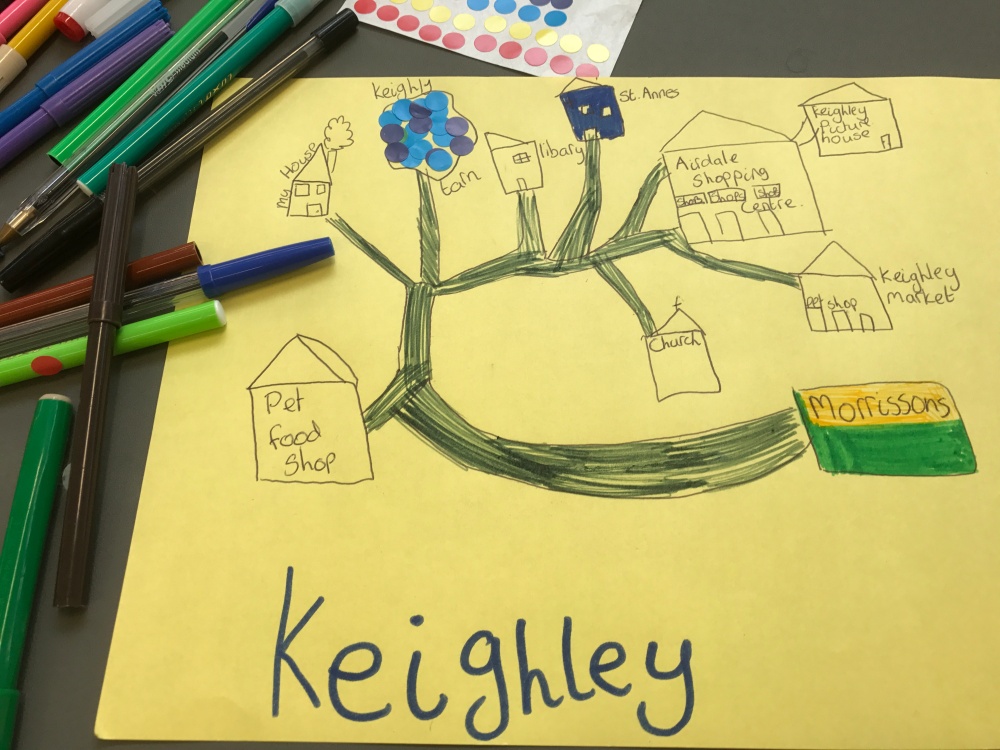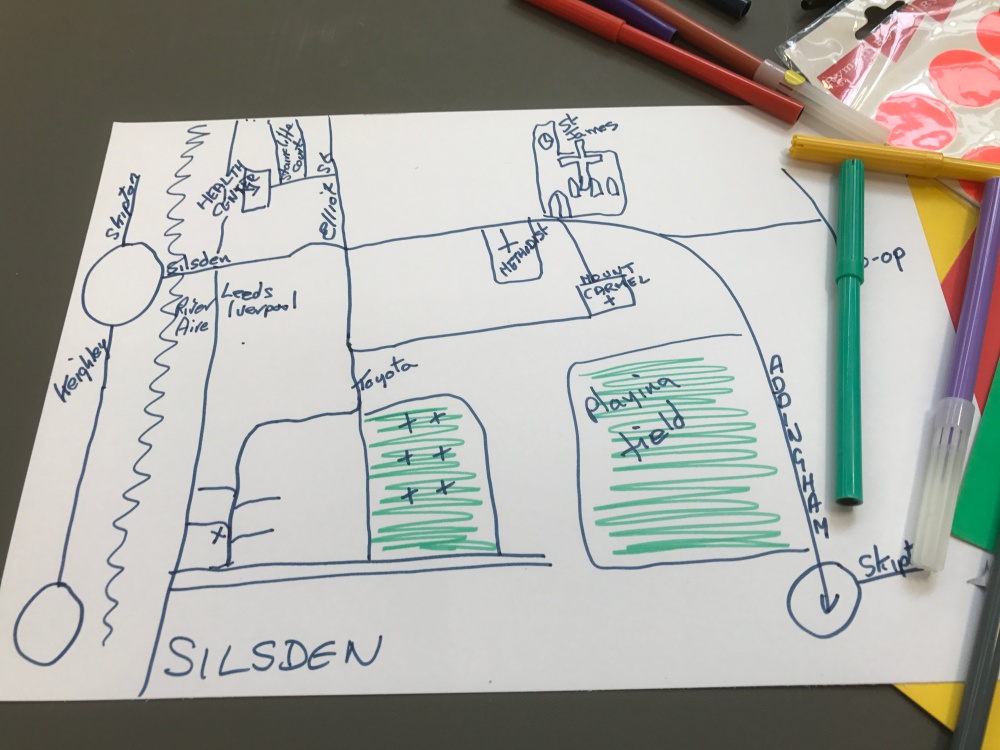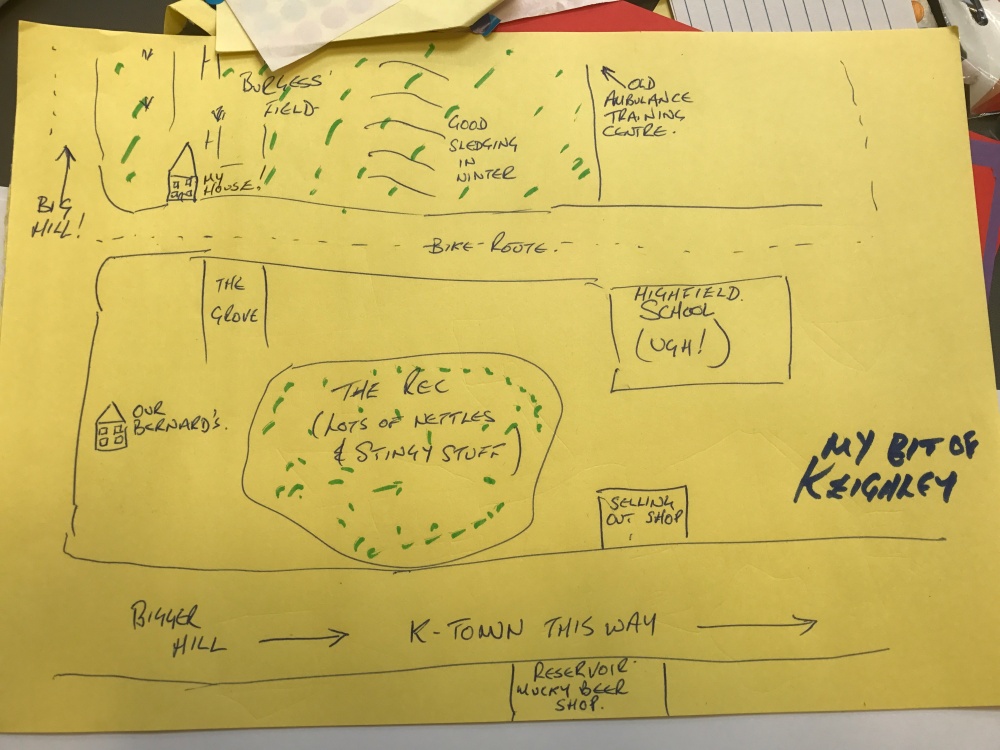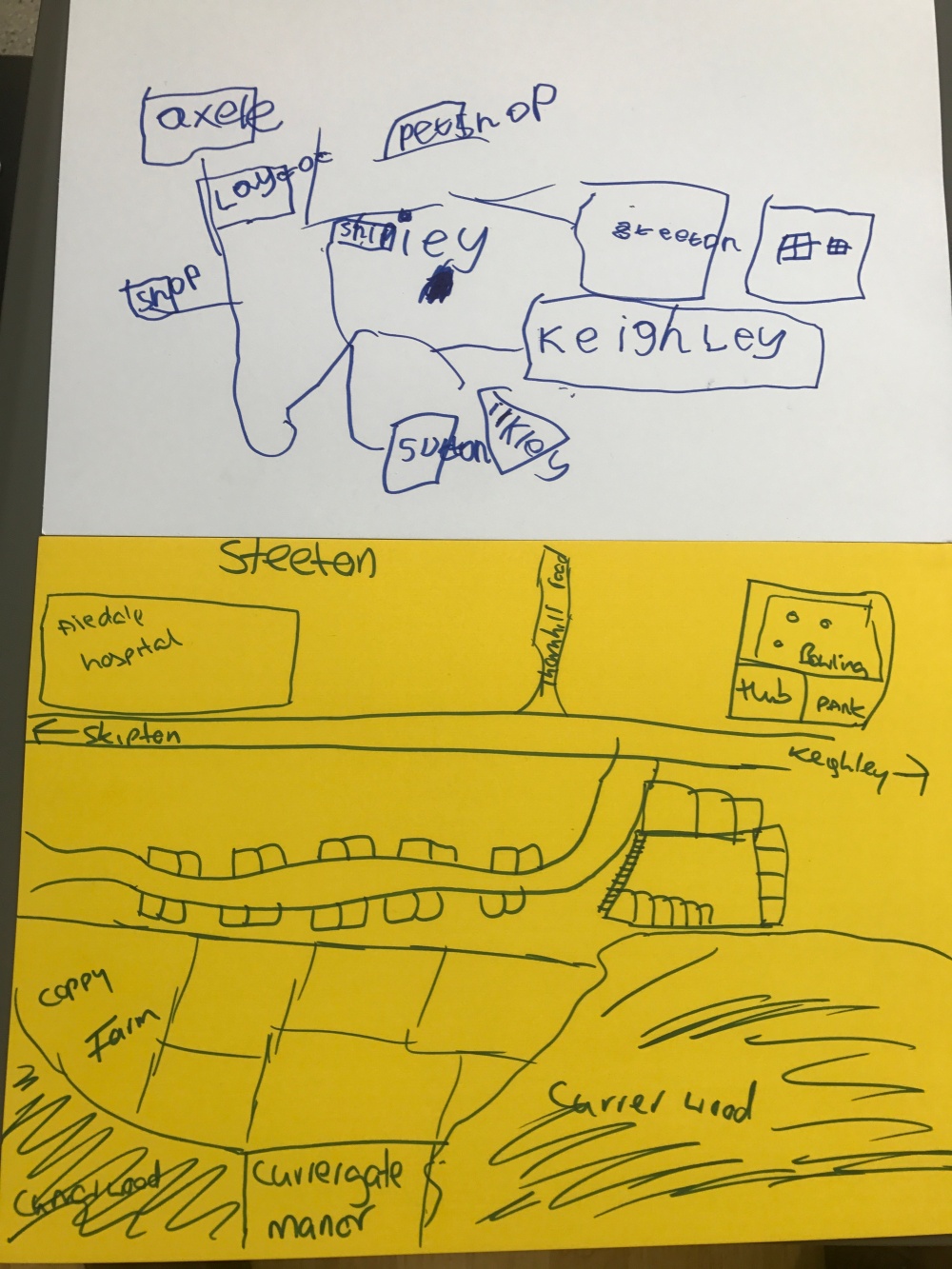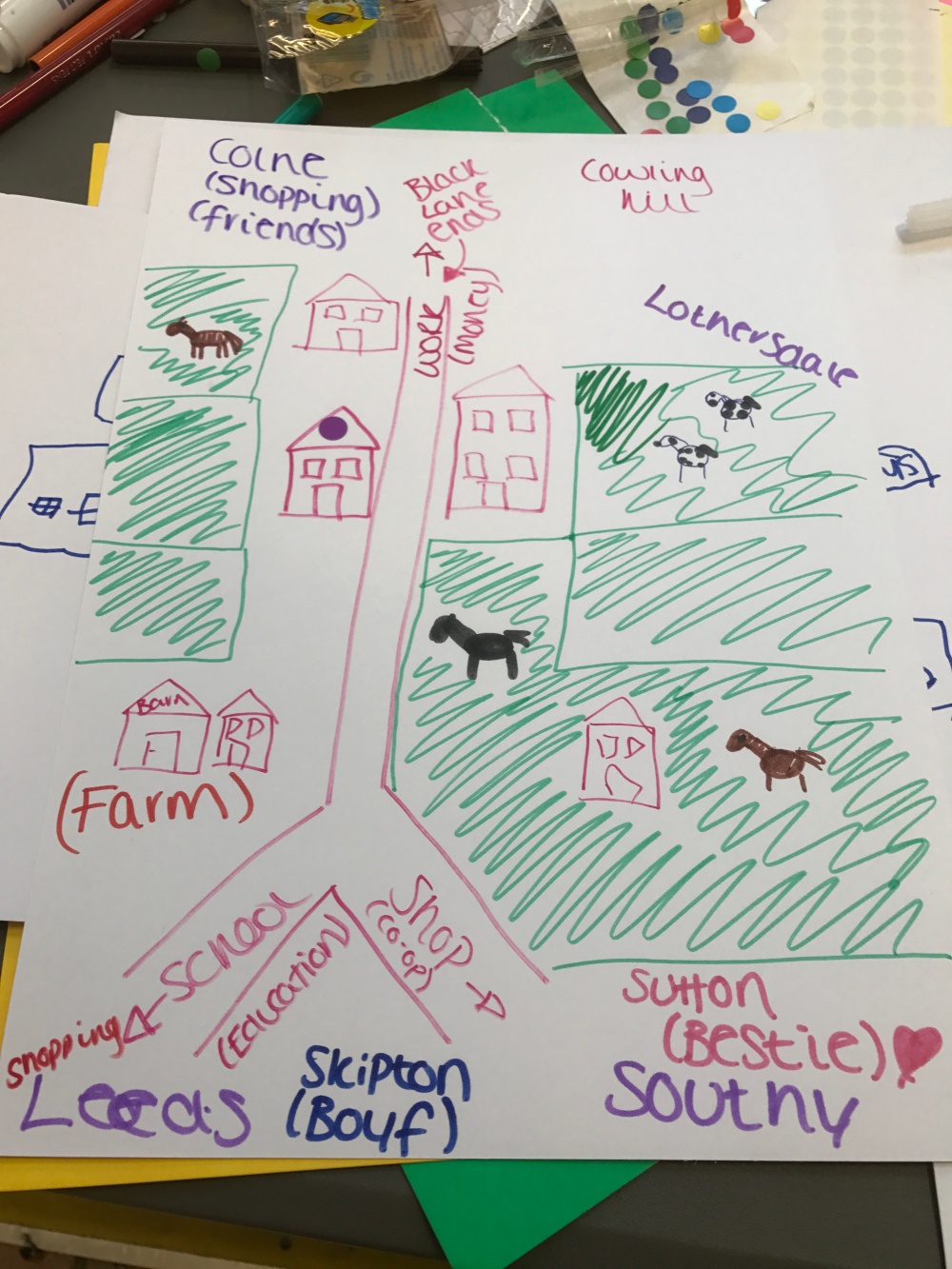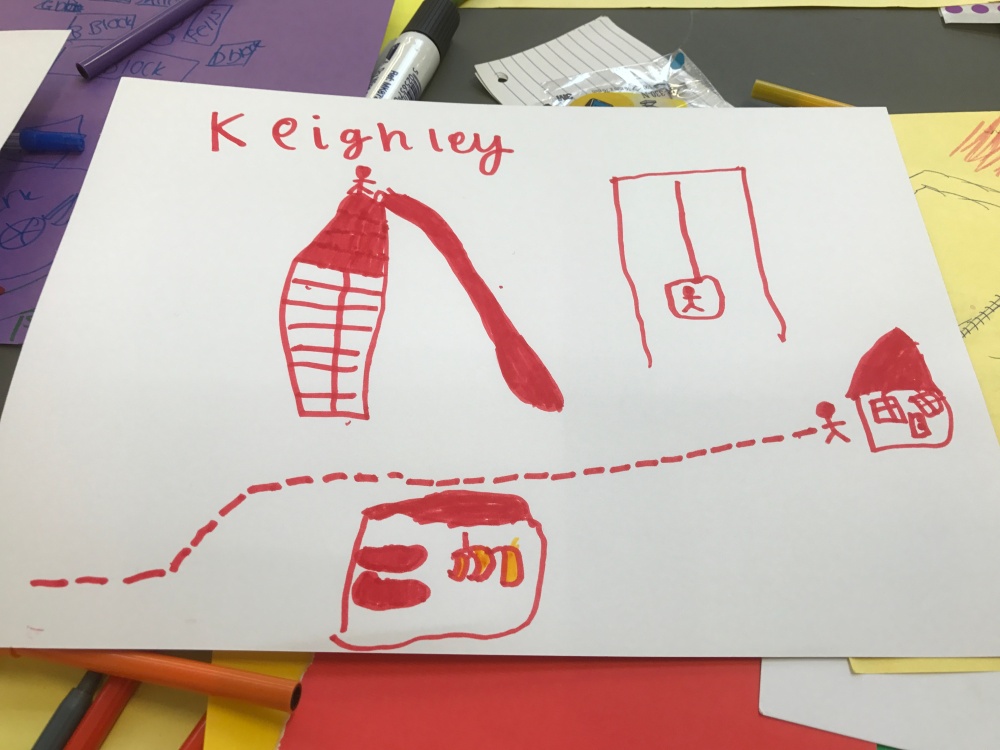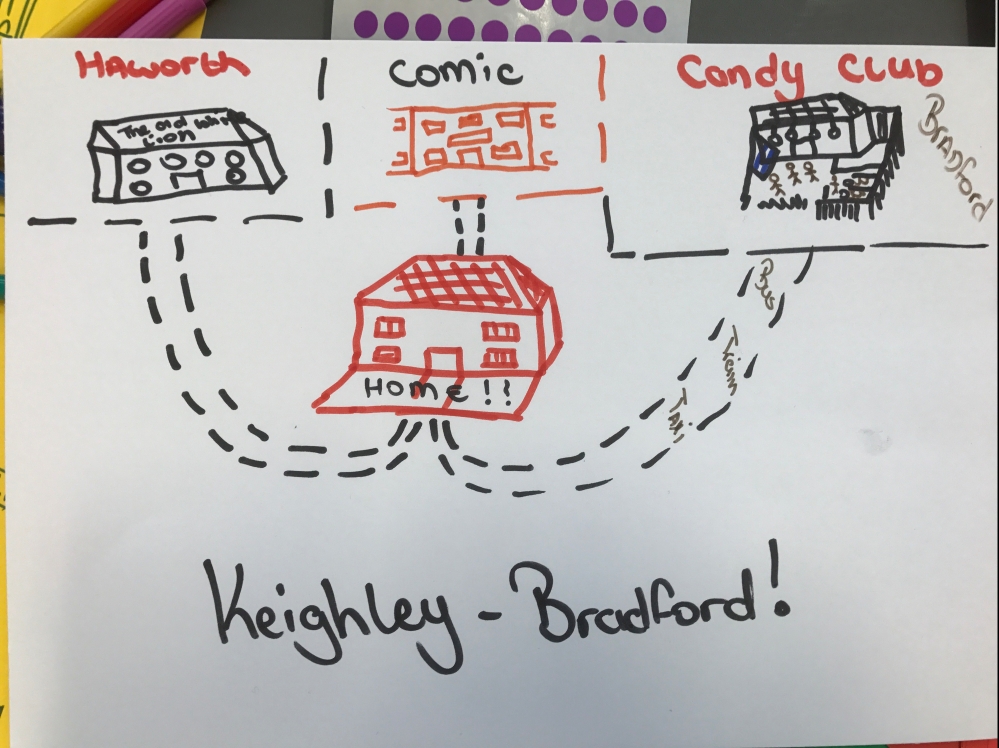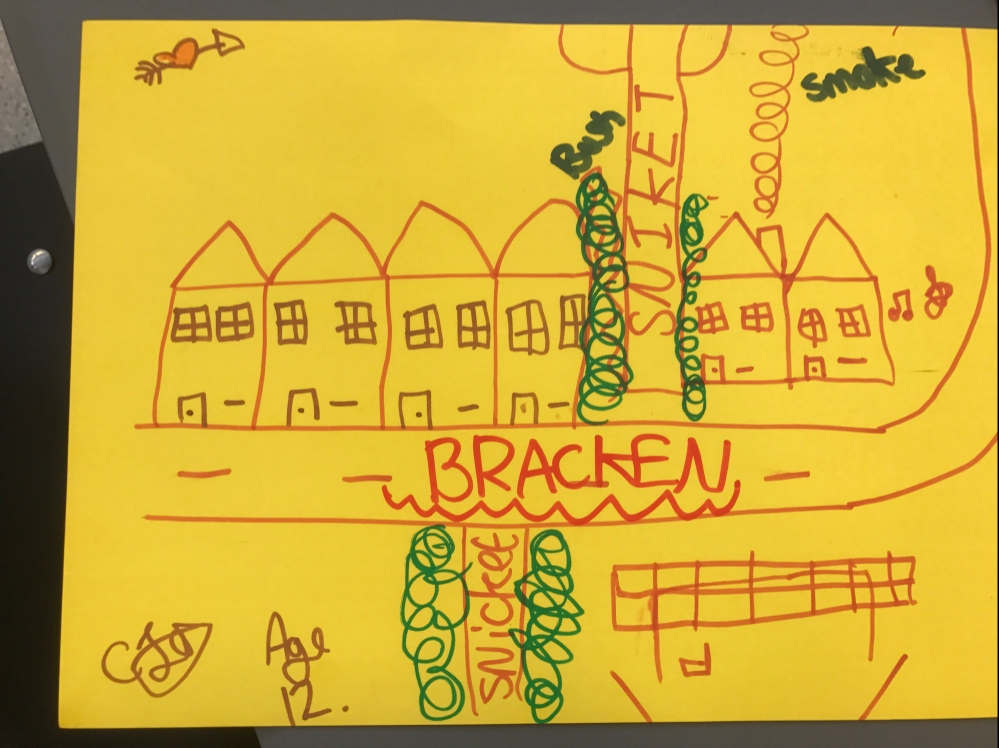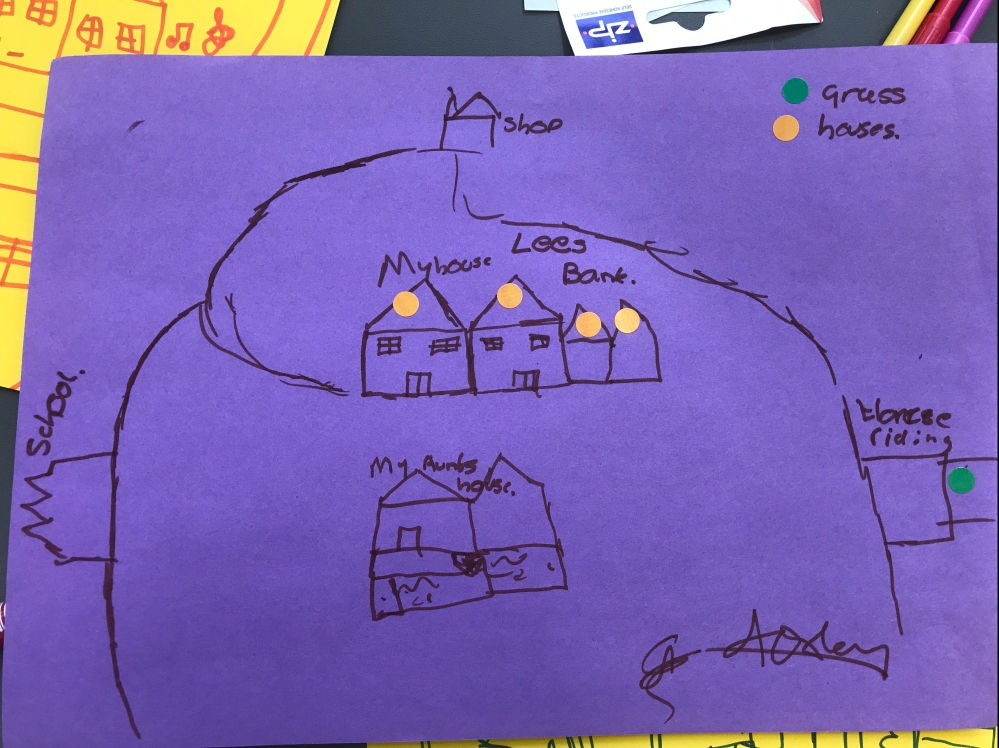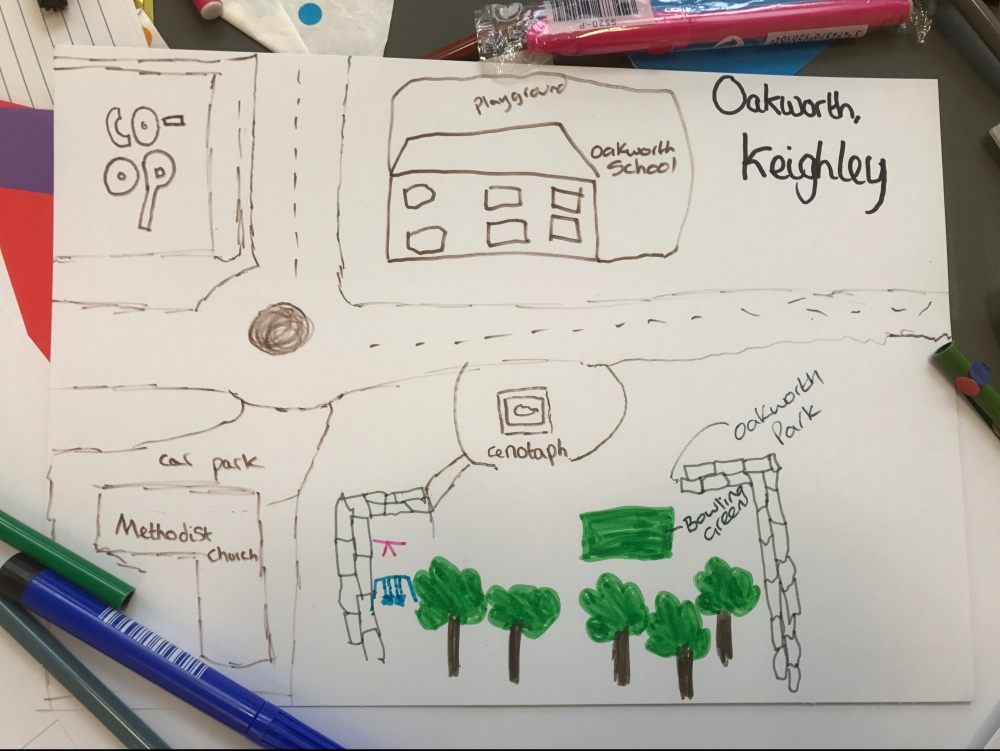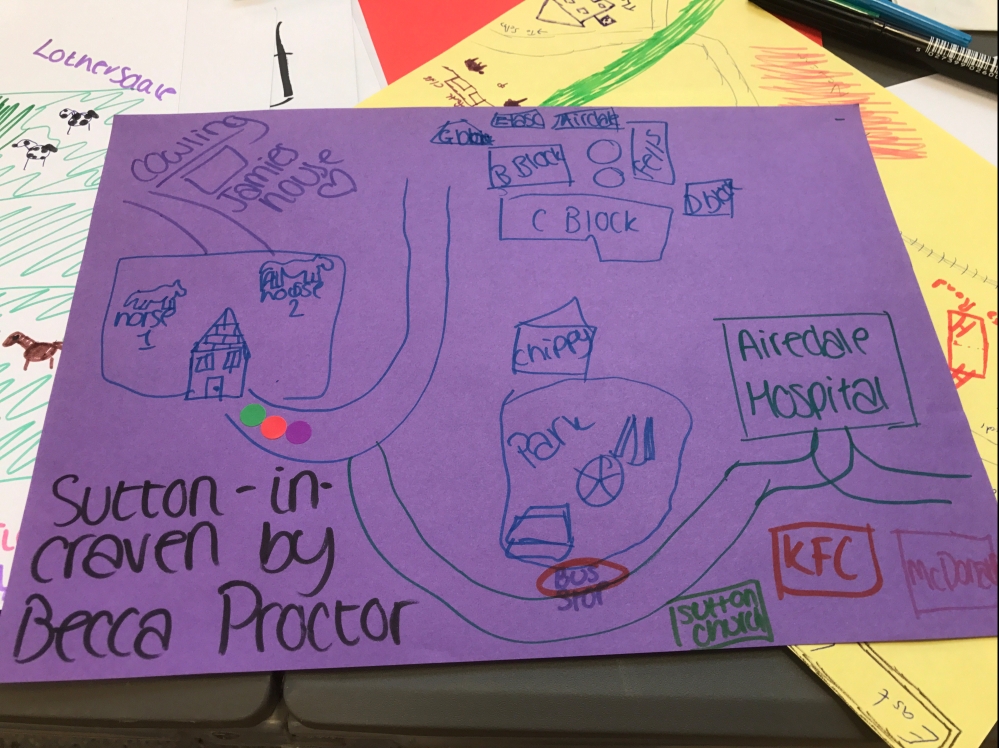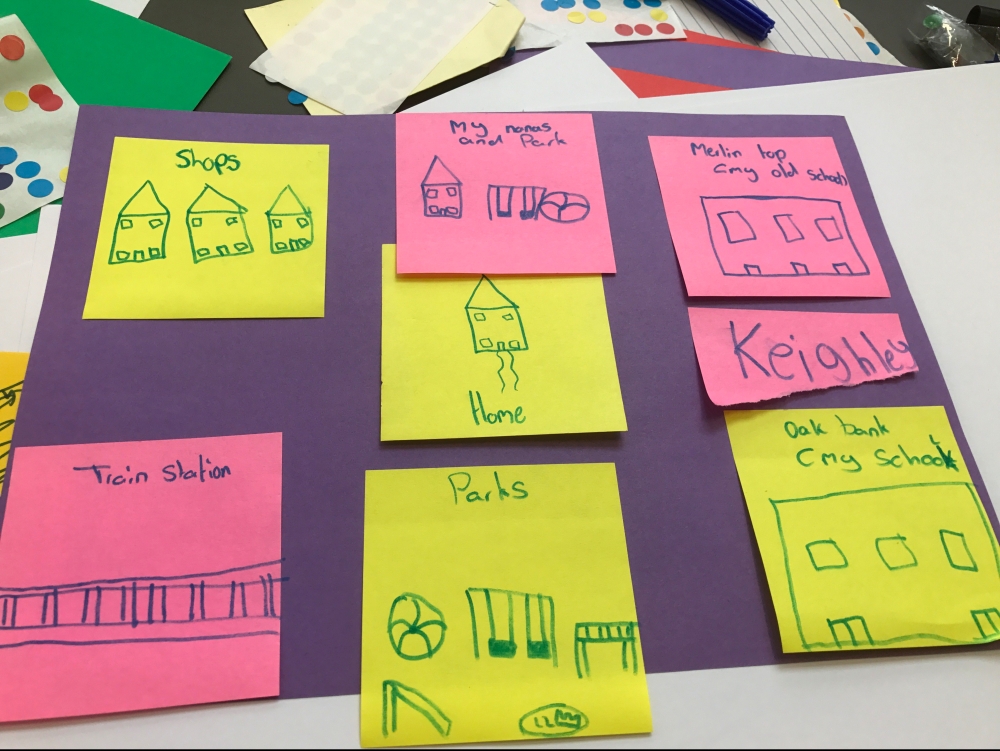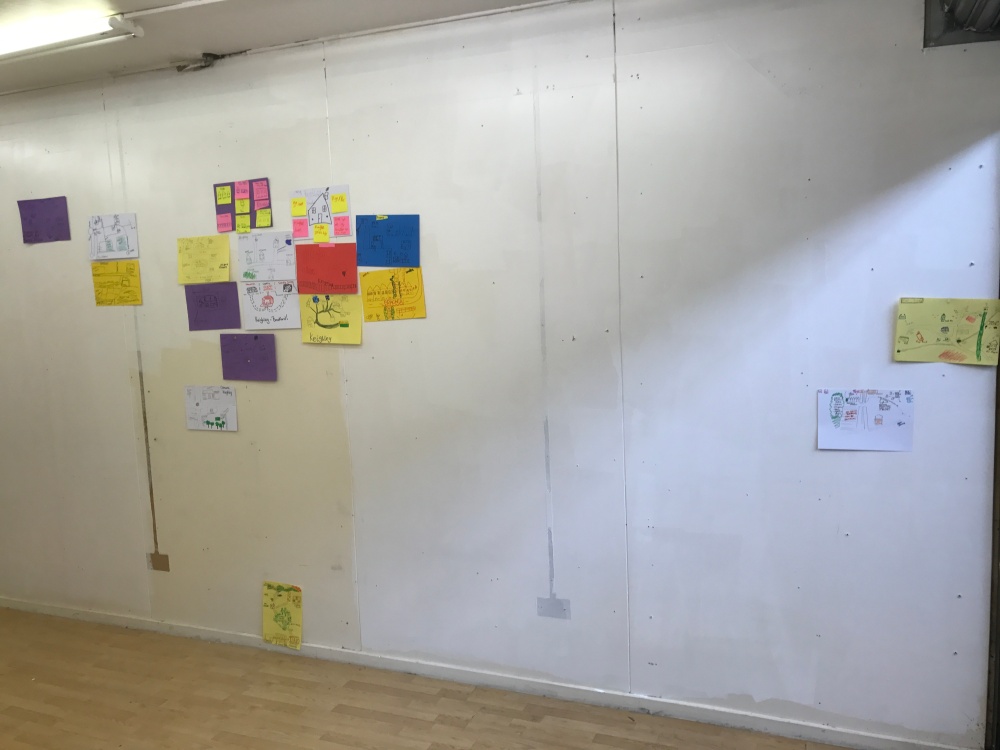Summary
- Yorkshire and the North are subject to the hegemony of power and influence concentrated in London.
- This hegemony has a negative impact on the life and freedom of people here.
- Many people in Yorkshire and the North do not have the same privileges as others in the region when it comes to life chances.
- Future opportunities for all in Yorkshire and the North depend on acknowledging that hegemony and privilege.
- That means actively building an alternative civil society that challenges and does not depend on London’s hegemony
- It also means actively addressing the impact of privilege on people in Yorkshire and the North as an integral part of regional democracy here.
Introduction
A few weeks ago the Ridings of Jorvik Society (RJS) tweeted a well known video experiment that tries to explain the idea of privilege, particularly in a US context. The RJS wondered aloud what a ‘UKcentric one, region focused’ would look like. I had already been thinking about how far hegemony could explain the reality of life for people in Yorkshire and the North today. I now started to think again about privilege more deeply and what it might mean for people in Yorkshire and the North. This included the extent to which campaigns for self-determination, devolution and regional democracy challenged or exacerbated such privilege.
Hegemony
In this specific context, hegemony to me means the dominance of a way of thinking, doing and being that is most closely associated with a specific region of the UK and which is exactly the same place where overwhelming political, economic, cultural and media power is centralised – London and the South East. That is not to say that all those who hold power are from London and the South East, but I believe that accepting the primacy of that way of thinking, doing and being smooths the path to power, status and financial wellbeing in the UK.
In terms of public transport, Tom Forth has described an ‘institutional bias’ that has merely ‘patronised’ us. This had led for example to most people in Yorkshire who actually welcome HS2 doing so because they have no genuine belief that London will ever do better (whether HS3/Crossrail for the North/Northern Powerhouse Rail or something else). George Monbiot has described how journalists ‘spend too much time in each other’s company’ and Paul Mason has described how this leads to people ‘seeing, faster than (the media) are seeing, a change in reality which (the media) are failing institutionally to deal with; and whose risks (the media) are refusing to understand’. Meanwhile Pat Kane has described this hegemony in part as ‘shared vocabulary and terms of reference, accumulation of capital of all kinds’ whilst Ed Carlisle has experienced first hand how our electoral system contributes to maintaining that hegemony.
Ultimately however the maintenance of this hegemony is most effectively sustained by our financial dependency on London. People who benefit from London’s hegemony use London’s hegemony to make decisions that maintain London’s hegemony. These decisions perpetuate Yorkshire’s (and other regions’) dependence and make challenges to London’s hegemony seem riskier. Whether it is about spending money (such as prioritising and investing in London’s schools or infrastructure over other parts of the UK) or it is about creating a political and legal climate (such as one that benefits types of industries concentrated in London but not one that benefits types of industries concentrated elsewhere), London continues to be economically successful because UK government has decided actively to do something to make it so. Even if sometimes that is a specific decision to get out of the way of capital or business. Each time these decisions are successful, they strengthen London’s case for being prioritised above everywhere else in any future return on investment analysis.
Privilege
Despite the fact that this hegemony has an impact on everyone living in Yorkshire and the North, many of our fellow citizens also benefit from or suffer disadvantage as a result of privilege. In particular there are a number of ‘protected characteristics’ (race, religion, gender, sexuality, disability, age and class) which have been shown to impact on an individual’s life chances. For example I write this as a white, heterosexual, able bodied forty-something male who attended a Methodist church in my youth, went on to University at 18 and has travelled widely on a UK/EU passport. I am aware of the privilege that contributed in many ways to me being able to take the time to think about, write and publish this article. I speak only for myself and from my own necessarily limited perspective.
Penny Wangari-Jones has described “overlapping and interdependent systems of advantage and disadvantage” where the “institutions that oppress are interconnected”. She suggests a need to “examine the structures of power that so successfully resist change” and that “solidarity is the key” through intersectionalism.
How does the hegemony of London and the South East contribute to privilege?
There is increasing awareness that hard and soft power in and over the UK is overwhelmingly concentrated in London but the question is whether that hegemony affects the life chances of people elsewhere. Given that I live in East Leeds, what does hegemony mean for us here in Yorkshire? Does living in Yorkshire mean you are likely to have fewer life chances? Does living in Yorkshire affect the range and quality of jobs available to you? Does living in Yorkshire affect your ability to bring about the changes you want to see in society? Does living in Yorkshire affect the quality of your health? In fact, does hegemony affect your freedom to be you? For example, does living in Yorkshire mean that your opinions are valued as highly? Does living in Yorkshire mean that the choices you make and the preferences you express lead to the same opportunities?
In my opinion, living in Yorkshire has a specific impact on all of this. To take this beyond the previously discussed realm of elections, the media and political decisions about where and how money is spent, what does this hegemony mean for language for example? If the English you hear around you is not the standard English that you are expected to use in academic and professional situations, does that mean you have to learn how to use a version of English that is not your own to get on? If you are always surrounded by such English, does that give you an advantage in academic and professional situations? Is that because the English commonly spoken by people in certain places is ‘better’ than others or is it because the people who speak that form of English play a dominant role in UK society? Is there anything wrong with learning different forms of English or other languages? Does it seem fair that children growing up in certain regions of the UK have to learn the standard dialect of English in order to progress whilst others do not (particularly when those children are already growing up in a place that already offers more life chances)?
Isn’t this really all about class though? It is definitely the case that people from middle class backgrounds in Yorkshire and the North are often described as working class by the Londoncentric media, perhaps because the culture most readily associated with Yorkshire and the North from outside has its roots in working class lives. It could be argued that in many cases this element of privilege is more important but nevertheless there has to be a question about where, if at all, geography fits in to intersectionality. In previous years it was the case that citizens of Yorkshire and the North could in theory move to a better situation anywhere within the EU (even if they faced the disadvantage of ‘starting again’ in an unfamiliar place) but now even that movement may be restricted, as it has been for the majority of people from outside the EU for much longer.
Nevertheless the UK itself continues to enjoy freedom of movement. Why don’t we just ‘get on our bikes’ to London/South East? Many do. They find themselves struggling to find somewhere to live that they can afford. Often they are doing jobs that don’t pay enough to live a reasonable life. Maybe they are doing unpaid internships to try and get the contacts and experience to find paid work. Just like many people who were born and raised in London itself. Of course, the people from London itself do have a much better chance of benefiting from having friends, family and other contacts already nearby. Maybe they are even living at home, maybe some are even paying little or no rent, maybe some have food and other things provided by parents. A job interview probably means a relatively short hop on the UK’s best funded public transport system rather than an expensive and time consuming trip using (at least partially) the less reliable transport networks that run outside the UK capital.
Nevertheless that London model failed many of its citizens long before even the Grenfell tragedy and we should stand in solidarity with all those marginalised and all those who challenge that London model. Take Back The City and others at least have the opportunity to do that with a mayor (unlike most of the North) and an assembly elected by proportional representation (an electoral system not used anywhere in the North). Given the impact of London’s hegemony on housing etc for its working class residents there is also the question of whether it is good for London to be under such pressure and therefore the role of London based organisations in standing in solidarity with us here in the North.
As the US video demonstrates, there are factors related to race, religion, gender, sexuality, disability, age and class that create barriers for some and privileges for others. Growing up in London doesn’t mean privilege disappears. If however you live in Yorkshire and the North, you have an additional barrier. Living in Yorkshire and the North means that others elsewhere have an advantage simply by living in London and the South East that will give them opportunities you are unlikely to access. Some of that may eventually lessen by moving to London. But is it OK that you have to? What does it mean for the future of our society that moving to London and/or accepting its hegemony can make such a difference to life chances? Is it OK that “the North has even forgotten it was ever defeated”.
In my opinion, privilege is not only structural but it affects people globally (even if to greater and lesser extents). In the context of this article London’s hegemony ‘only’ affects the life chances of people living in a relatively small area of this planet, even if Jon Trickett and many others in the North feel like they are “the last colonial outpost of the British Empire”. Those life chances are still much better than those of many people around the world, even if they are worse than most other regions of Northern Europe. The impact of privilege and the impact of London’s hegemony are not the same thing but they are related enough that I hope fellow campaigners for regional democracy take privilege seriously and fellow intersectionalists take seriously how London’s hegemony affects people in Yorkshire and the North. I believe London’s hegemony contributes to privilege and by challenging it, we can build something better together.
What does this mean for regional democracy?
It seems to me that those of us in Yorkshire and the North who agree (even if only in part) with this analysis of hegemony and privilege should be seeking to make allies of those campaigning for ‘liberation’. We should actively try to understand and work in solidarity with those challenging privilege on an intersectional basis. This raises the broader question as to whether individuals in our region unable to benefit from one privilege or another actually want regional democracy. Our cause is no more righteous than any other, but its value is well understood by those whose regional democracy campaigning is already informed by their understanding of intersectionality. For example Leila Taleb has long argued that for a woman of colour trying to reach her full potential, living in Yorkshire and the North is an extra challenge she is obliged to overcome, not necessarily the most important but definitely an added one.
This has most recently come to media attention with the release of data about the intake to Oxford and Cambridge universities suggesting that it is harder for people from the North to enter the UK’s elite (and become part of that hegemony). Ultimately if the proposed answer is to get more Northern and working class students to Oxbridge, that means trying (and potentially failing) to succeed on the terms of those interested in retaining their own privilege. The only truly transformative approach would be to create alternative power balances to a system that puts so much power in hands of Oxbridge graduates.
The reality of London is that decisions affecting Yorkshire and much of the North (though rarely just our region) are made there by people who spend the overwhelming part of their lives there in professional and social contact with other people who spend the overwhelming part of their lives there. There is little doubt that most of those people genuinely feel that the decisions they make are in the best interests of people across England or the UK (or Europe or the World). Many feel aggrieved at the suggestion that their decisions are not in the best interests of people in Yorkshire. The reality of life for people in Yorkshire however (particularly in comparison with those in London and the South East, particularly compared with those living in other regions of Northern Europe) suggests that this good will towards Yorkshire has not been enough. A Londoncentric perspective on what’s best for Yorkshire has been given a long and reasonable chance to succeed but it hasn’t worked. The future must be different. The future must acknowledge that London’s hegemony over Yorkshire, not just in the political sphere, has to come to an end and that the UK as a whole has a responsibility towards Yorkshire (and any other self-defined regions that also want to do so) to actively get out of the way so that Yorkshire (and the other regions) can determine their own futures autonomously.
And the reality of this hegemony is that the one affecting the life chances of people in Yorkshire is the same one that is a barrier to a fairer, more inclusive politics in the UK as a whole. To bring about social justice anywhere on this island means breaking up the hegemony and creating alternative, more diverse, geographically spread, balances of power (perhaps learning from rhizomatic organisation as described by Lou Mycroft here). We need to build, support and network organisations and civil society autonomous from London to challenge and provide counter balance whilst at the same time all of those emerging institutions of regional democracy must be aware of privilege and active allies in addressing that privilege within our region.
I described many of these possible organisations in October 2015. Since then the biggest change affecting where I live has been the increasing awareness of the Yorkshire Post of its own potential in challenging London’s hegemony across partisan lines. I hope this continues and it increasingly challenges privilege within Yorkshire too. Same Skies also started to build a timeline of initiatives relevant to West Yorkshire based on this principle.
There are many good organisations based in London who want to be ‘national’ but in reality having a head office in London means it is hard for them not be part of this hegemony, living, socialising and working in London with people who do the same. Charities and pressure groups have limited funds and this hegemony means it makes most sense to base their limited resources in London, making doing things there so much easier and therefore so much more likely (such as this event talking specifically about why ‘England without London’ voted leave in the EU referendum). When funding cuts cause reductions in provision, the last places to go are those in London (for example, a number of ‘national’ refugee charities retreated to London in early/mid 2000s despite asylum seeker dispersal to places with far less provision and experience than London).
Equally political parties whose primary focus is to gain power at Westminster prioritise the power of Westminster and see everything through the prism of whether it will make their chances at Westminster better, not whether it is in the best interests of people here in Yorkshire and the North. The argument is always that Yorkshire will only be OK when X party is in power at Westminster (i.e. when it gains a greater share of power in London’s hegemony), Yorkshire just needs to trust in them and accept those times when its interests are contrary to those of the party. But when will that moment come? Under all three of the UK wide parties to have held power at Westminster, the reality of London’s hegemony has continued to have a negative impact on the lives of people in Yorkshire. It continues to be the case that London head offices can impose their will on local branches to suit the ‘national’ agenda. What will it take for ‘national’ parties to challenge that hegemony?
For example, despite talk in the Labour party about radical change, it cannot happen without addressing London’s hegemony, as described by Ben Wray in this class analysis of the UK’s constitution. In fact the only place in the UK where there is a significant challenge to London’s hegemony (a thriving, alternative civil society) is the only part where any of Labour’s 2017 manifesto has been delivered. A place which sees its own increasing freedoms as contributing to the North’s liberation from London’s hegemony and where Gramsci’s ‘trenches in front of the elite’ were the most recent successful challenge to London’s hegemony on this island (as described by Allan Burnett in response to Paul Mason). Equally it is noteworthy that Andy Burnham has described how he only really started to understand this when he left Westminster.
Conclusion
Much of what I have described here could apply to many parts of the UK, especially the regions of ‘England’. But ultimately this is all about ‘where I’m calling from’. This is how it looks from here. A fair future for Yorkshire and the North can only be decided by those who live here. No matter the sincerity of motives and intelligence of analysis, a Londoncentric UK has only perpetuated privilege and injustice. Something better can only happen if London no longer has hegemony over people in Yorkshire and the North and all of us here work towards a future where privilege plays no part.
In conclusion, I believe that:
- we all must make more effort to address the reality that where you live/grow up affects your life chances.
- we must put the concept of hegemony at the heart of regional democracy campaigning (including its implication that we need to act ‘autonomously’ to genuinely be able to reach our full potential).
- amidst the growth of regional democracy in Yorkshire and the North, it is essential that we all actively take responsibility for addressing the impact of privilege on our fellow citizens.
Ian Martin is a member of Same Skies based in East Leeds
* With apologies to Raymond Carver













































